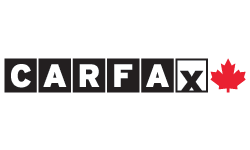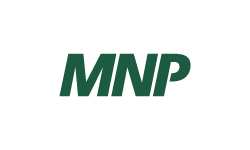By: Blair Qualey
Like a lot of folks in Canada this week, I was eagerly — and somewhat apprehensively — awaiting the highly-anticipated meeting between our newly elected PM, Mark Carney, and President Donald Trump. The conversation was bound to be tumultuous, but as the President of BC’s New Car Dealers, I was keen to hear how both men would address the situation regarding the emerging changes to our intertwined automotive industries.
There’s a great deal at stake for Canadian manufacturing and for the thousands of small businesses that depend on a stable, open border to keep cars moving, from assembly lines to showroom floors — and that’s before we even consider the consumers themselves and how these moves will affect the pricing of new vehicles.
What stood out to me during their exchange, although not entirely surprising, was just how differently each leader views that relationship. Carney’s expertise in financial matters was on display when he made the case that Canada isn’t simply a trading partner, we’re the U.S.’s largest customer, and when it comes to vehicles, our industries are almost entirely interconnected. He reminded Trump that roughly 50 per cent of a Canadian-built car is made from American parts, which is just one of many statistics that highlight how deeply integrated our supply chains have become. According to Carney, this is only one part of a much bigger discussion, and one that calls for ongoing collaboration and dialogue between the two partner countries.
Predictably, President Trump took a very different tone, stating plainly that the United States “doesn’t really want cars from Canada” and that if these tariffs are applied, it may no longer make sense for Canada to manufacture cars at all. He referenced a past conversation with Justin Trudeau, where the former Prime Minister reportedly said such a tariff could “mean the end of Canada.” Whether this is classic Trump-style hyperbole or not, that kind of talk is a major red flag for our sector.
From where I sit, these aren’t just political theatrics, they’re real threats with real consequences. In 2023 alone, more than 90 percent of Canada’s auto and parts exports went to the U.S., and the same part might cross the border five or six times before landing in a finished vehicle on a showroom floor. If tariffs are imposed, the impacts on pricing, inventory, and supply stability will be swift, with British Columbians, and Canadians across the country, feeling the impact on their wallets.
For example, dealers here in BC could face vehicle cost increases of anywhere from 12.5 percent to 27.5 percent, depending on the make and model. That’s not just a business concern, it hits affordability, delays purchases, and makes it harder for consumers to upgrade to newer, cleaner vehicles, such as EVs and Hybrids, at a time when we’re being encouraged to do exactly that. It also adds pressure to a population already feeling the impact of inflation and rising costs across the board.
U.S. industry leaders are also voicing their concerns. Earlier this year, Ford CEO Jim Farley warned that a 25 percent cross-border tariff would “blow a hole in the U.S. auto industry we’ve never seen.” When even American CEOs are sounding alarm bells, that is a worrying sign for those of us north of the border.
So what’s the takeaway for us here in BC? First, we need to continue calling for a calm, measured approach to cross-border trade, one that acknowledges how interdependent our industries really are. Second, and perhaps most importantly, we need to prepare for the potential fallout. That means looking at ways to soften the blow for consumers, whether that’s through provincial incentives, tax relief, or increased flexibility in how we meet evolving regulatory targets (as I’ve suggested before).
This isn’t just about factories in Ontario or policy in Ottawa. This is about families trying to buy a vehicle they can rely on, and dealers doing everything they can to serve them in uncertain times. In the meantime, we here at the NCDA will keep our eyes on what matters, like supporting predictable policy, stable trade, and putting consumers first.
Blair Qualey is President and CEO of the New Car Dealers Association of BC. You can email him at [email protected].










